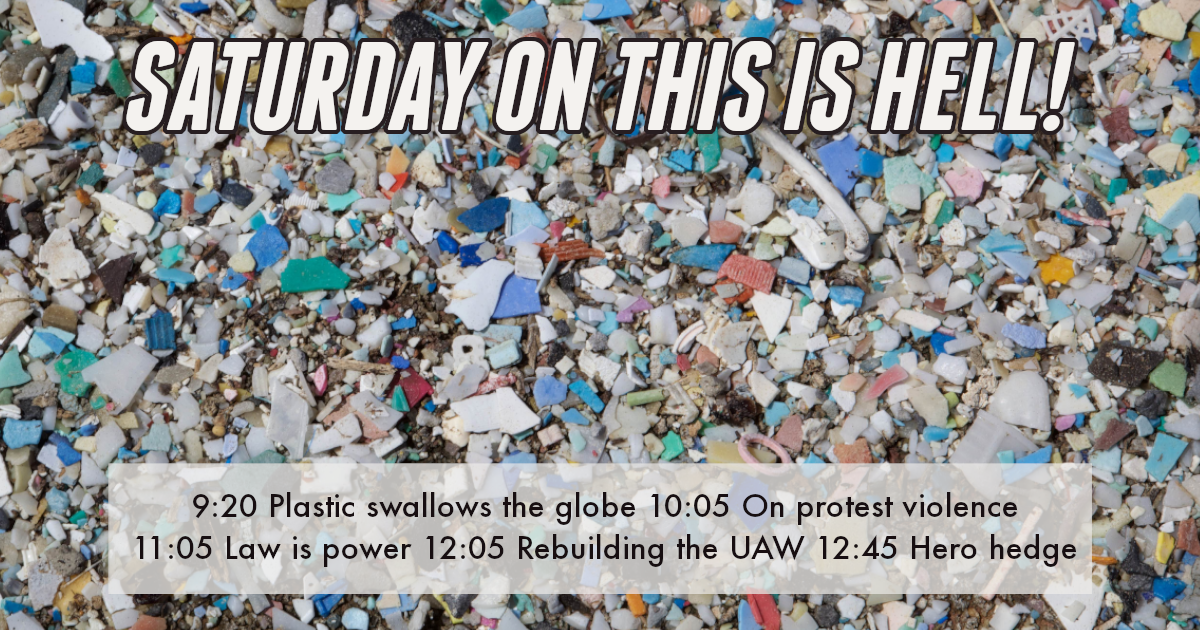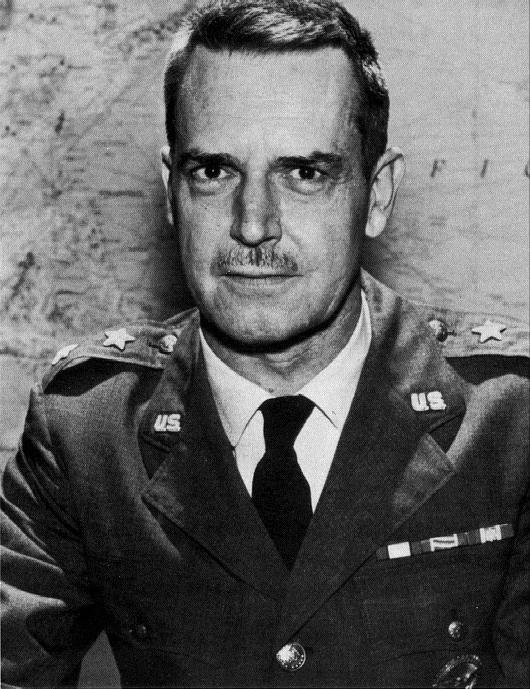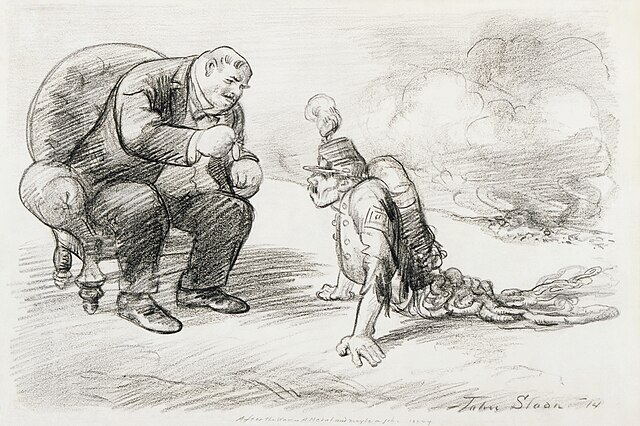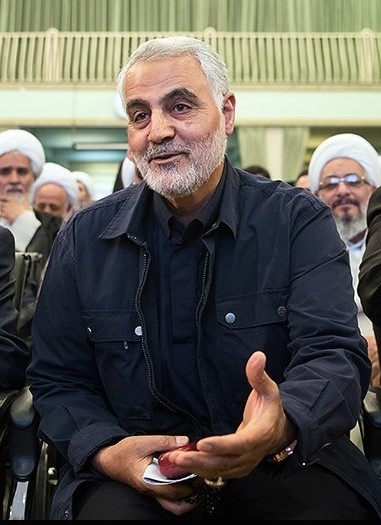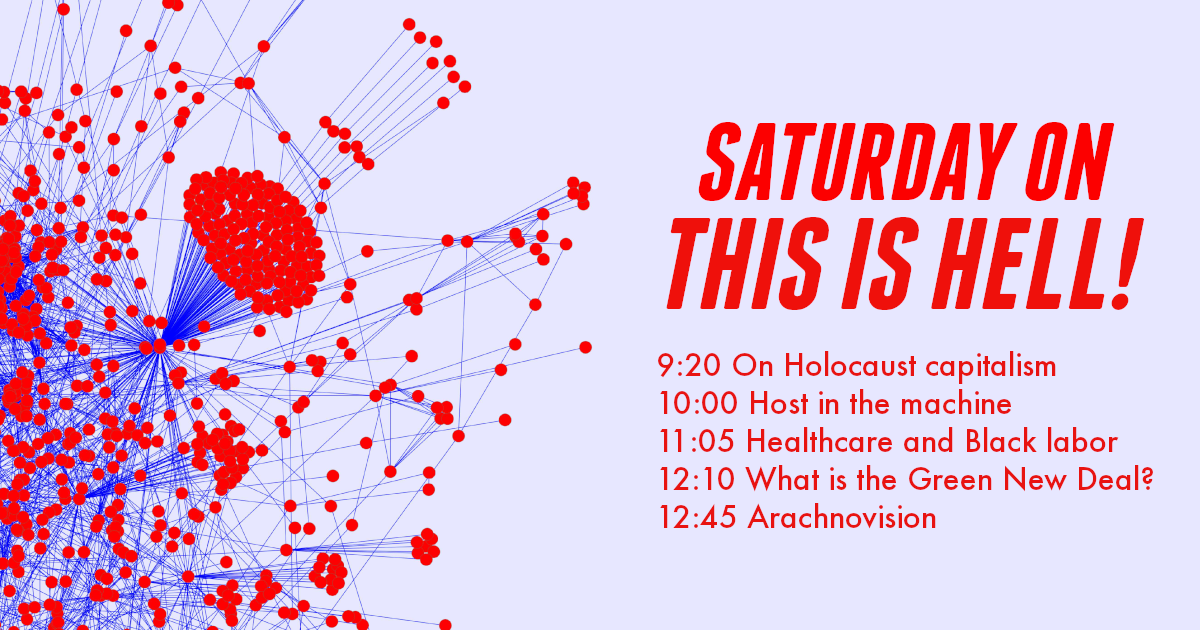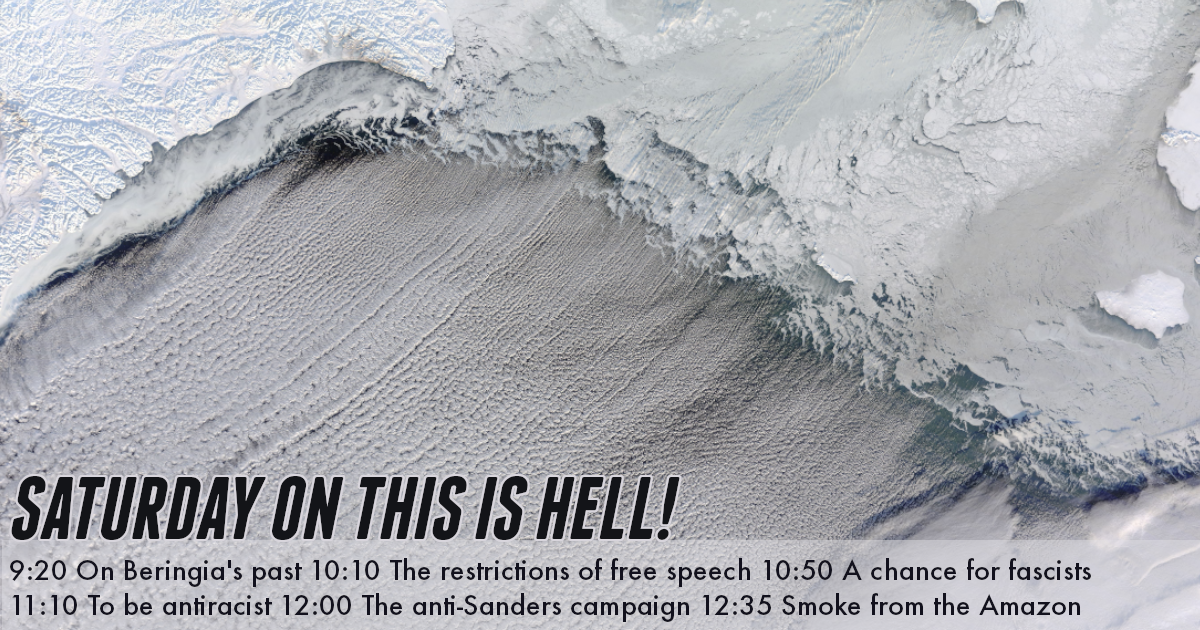Listen live from 9AM - 1:00PM Central on WNUR 89.3FM / stream at www.thisishell.com / subscribe to the podcast
9:20 - Journalist Sharon Lerner investigates the global environmental disaster of plastic waste.
Sharon wrote the article Waste Only: How the Plastics Industry is Fighting to Keep Polluting the World for The Intercept
10:05 - Sociologist Anne Nassauer examines power and violence in political protests.
Anne wrote the book Situational Breakdowns: Understanding Protest Violence and other Surprising Outcomes for Oxford University Press.
11:05 - Law scholar Jack Jackson explains how the American right seized power beyond law.
Jack is author of the book Law Without Future: Anti-Constitutional Politics and the American Right from University of Pennsylvania Press.
12:10 - Former autoworker Thomas Adams explores a history of concession and class betrayal from UAW leadership.
Thomas wrote the article A tale of corruption by the United Auto Workers and the Big Three American automakers for Monthly Review.
12:45 - In a Moment of Truth, Jeff Dorchen wonders if it's worth having heroes.
Listen live from 9AM - 1:00PM Central on WNUR 89.3FM / stream at www.thisishell.com / subscribe to the podcast
9:20 - Journalist Brian Hioe reports on Hong Kong's protest movement after defeating the extradition bill.
Brian wrote the article Withdrawal of the extradition bill in hong kong is likely too little, too late to put an end to protests for New Bloom.
10:05 - Writer Alex Adams examines our fictional justification for real life torture policies.
Alex is author of the book How to Justify Torture: Inside the Ticking Bomb Scenario from Repeater Books.
11:05 - Activist Keir Milburn explains how left politics opened up for a generation of young people.
Keir is author of the book Generation Left from Polity.
12:10 - Therapist Jonathan Foiles explores the trauma of daily life in urban America.
Jonathan is author of the book This City Is Killing Me: Community Trauma and Toxic Stress in Urban America from Belt Publishing.
12:45 - In a Moment of Truth, Jeff Dorchen refuses to take a dive.
Welcome to the Moment of Truth: the thirst that is the drink.
Spiders are spinning their webs in the grass: pretty, tiny, black jumping spiders, with turquoise rings around their abdomens. Spiders have spinneret glands to poop out their web strands. That’s one way to do it, I guess!
Kids with excellent eyesight can watch the spiders spin. So can old people who once had good eyesight but now have excellent reading glasses. From the vantage point of the kids, it all looks like an arachnid multi-scene diorama. The spiders appear to be weaving rustic booths in the grass, tiny bamboo booths with roofs of foliage, like tiny sukkahs for Sukkot, the harvest festival. These are Jewish spiders. Their turquoise comes from their retired Uncle Nate in Arizona.
One spider, I don’t know if he’s Jewish or not, spins his webs out of gold. His name is Epstein. I heard this story about Epstein on “The Daily,” the New York Times podcast, hosted by Michael Barbaro. It was one of many gruesome tales I’ve read or heard about this gold-spinning spider. Like all the stories about him, it’s appalling. I don’t even like thinking about them, any of them, but this one especially sickens me. Nevertheless, it should be known, so that you can understand only the smallest fraction of the way Epstein wielded his wealth. It’s illustrative of the weaponization of power through, not only wealth inequality, but gender inequality and age inequality, and a slew of other inequalities that come together to make up status inequality.
This is the story of an artist in her mid-twenties, so she wasn’t under the age of majority, as many of Epstein’s victims were. We’ll leave behind the spider metaphor for a bit, though we’ll come back to it.
Maria was an artist, not a spider. The only reason I couple spiders and the story of Maria is that what Epstein did to Maria was a violation. And the thing I think of when I think of good things being violated is industrious, busy spiders of the variety I’ve described above, weaving their tiny sukkot in their tiny diorama world in the grass, and that impulse of pure endeavor being invaded by conquistadors. It’s a world like that one, being violated. A world of effort and beauty, of individual and communal spirit, and of ritual, being violated by a creature weaving webs of gold and injecting his prey with venom that liquifies their... read more
Listen live from 9AM - 1:00PM Central on WNUR 89.3FM / stream at www.thisishell.com / subscribe to the podcast
9:20 - Writer Richard Hunsinger sees the future of capitalism in America's migrant concentration camps.
Richard wrote the article Holocaust Capitalism for Cosmonaut.
10:00 - Writer Richard Seymour explains what social media is consuming when we consume social media.
Richard is author of the new book The Twittering Machine from The Indigo Press.
11:05 - Sociologist Adia Harvey Wingfield examines the labor of Black healthcare workers under racial outsourcing.
Adia is author of the new book Flatlining: Race, Work, and Health Care in the New Economy from University of California Press.
12:10 - Historian Aviva Chomsky looks at what the Green New Deal is, and isn't, and could be.
Aviva wrote the article Jobs, the Environment, and a Planet in Crisis for TomDispatch.
12:45 - In a Moment of Truth, Jeff Dorchen looks too closely at spiders.
Welcome to the Moment of Truth: the thirst that is the drink.
Everything old is new again, as the saying goes. Whitey is back, have you noticed? Not the word, the guy. Whitey. The guy who went to the Moon while Gil Scott Heron’s sister Nell done got bit by a rat. Whitey, rapey, assassinatey, pollutey, corrupty, flag-wavy, and Nazi. The seven warpeds. They’re all back. It’s almost like they never left.
Ever since their crushing defeat in WWII (Francisco Franco a notable exception), fascists have been on what the English call, “the back foot.” Governments from 1945 onwards have been dominated by non-fascists and crypto-fascists, in numbers far greater than their percentage in the population at large, if recent exercise of the public franchise in the West is any indication. What qualifies non-fascists and crypto-fascists to take such an outsize chunk of the pie of governance? Have you seen how they’ve mismanaged things so far? The Western democracies today suffer from shaky currencies, inter-cultural strife, municipalities hamstrung by austerity caused by corporate corruption and justified by false shortages, and the icing on the cake, a sure sign of decaying social cohesion and the failure of the ruling class: these nations are all teetering on the brink of fascism!
So maybe it’s time to give fascism another look. If the best the current non-fascist and crypto- fascist rulers can deliver, at the end of three quarters of a century of having it their way, is a collapse into fascism, why not give fascism a try? Fascism has been in remission for longer than anyone expected. Like a case of shingles, why not just accept it and try to make the best of it? When life gives you shingles, or fascism, surely there’s lemonade to be manufactured. That’s what the fascists would have done. Or would have had some prisoners do for them.
Fascism clearly has some very attractive qualities. Rigid, brutally-enforced order, for one. It kept the trains running on time, the streets clean (when they weren’t coursing with blood or littered with broken glass), and the working class in an appropriately terrorized, or “eager to please,” condition.
Fear was the great motivating force. You could always tell where you were in the social order by who it was you were afraid of. The ambitious aspired to rise from fearing the bureaucrat immediately above them to being... read more
Listen live from 9AM - 1:00PM Central on WNUR 89.3FM / stream at www.thisishell.com / subscribe to the podcast
9:20 - Environmental historian Bathsheba Demuth explores the long history of the Bering Strait.
Bathsheba is author of Floating Coast: An Environmental History of the Bering Strait from Norton Books.
10:10 - P.E. Moskowitz examines the problems with free speech in an unfree world.
P.E. is author of The Case Against Free Speech: The First Amendment, Fascism, and the Future of Dissent from Bold Type Books.
10:45 - In a Moment of Truth, Jeff Dorchen wonders if maybe it's time we gave the fascists another chance.
I just paste what he sends me folks.
11:10 - Historian Ibram X. Kendi looks to an antiracist society, and the path towards it.
Ibram is author of How To Be An Antiracist from One World Literature.
12:00 - Writer / podcaster Katie Halper examines the New York Times's anti-Sanders campaign.
Katie wrote the articles Sydney Ember’s Secret Sources and MSNBC’s Anti-Sanders Bias Makes It Forget How to Do Math for FAIR.
12:30 - Live from Sao Paulo, Brian Mier reports from under the cloud of the burning Amazon.
Brian wrote the article The Day the Sky Went out for Brasilwire.
